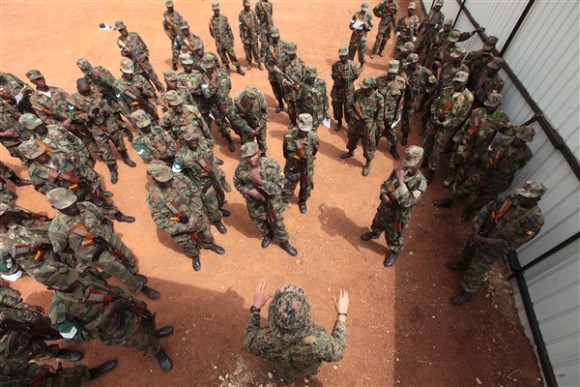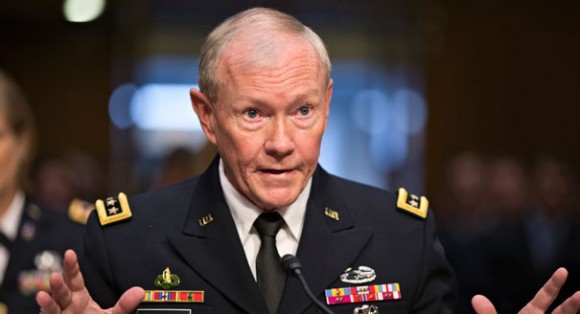Not more than a year ago Lockheed Martin’s Bob Stevens was all but pulling at his hair and gnashing his teeth in anticipation of sequestration. Clearly doing the Republican warhawks’ bidding ahead of the presidential election, he warned that Lockheed may not be able to support U.S forces in the field and that working families might be devastated by layoffs — 123,000 in fact — if congress didn’t do something to stave off the $459 billion in prospective budget cuts over the next decade.
Stevens, who took home more than $23 million in compensation in 2011, wasn’t the only defense contractor CEO to play chicken little last year, but he was one of the most melodramatic, threatening to issue 123,000 layoff notices before the major contractor even scheduled any. He also joined an immense lobbying effort that peddled the hyper-narrative (based in part on this industry-generated report) that sequestration would shave 1% off the U.S. gross domestic product, raise the unemployment rate by 0.7%, and kill 1 million jobs.
Well we knew the layoff notices were a kabuki dance from the beginning, and that was confirmed when Stevens’ abruptly withdrew the threat just before the election. We also got an inkling that things couldn’t be so bad when it was reported in April that CEOs from all these major contractors were getting raises, including Stevens, whose compensation went up to $27.5 million in 2012.
Now, according to The Washington Post this morning, we’ve learned that these defense contractors have been “weathering the federal budget sequester far more easily than they projected, in part because they have gradually eliminated jobs over the past few years in anticipation of spending cuts.”
That’s right, while they tried to keep our attention on the falling sky, these cry babies had been trimming budgets for years (plenty of people were reporting this, by the way) to whether the storm. The bloviation and bluster was all a political show. In fact, good old Lockheed reported $859 million in profit in the second quarter of 2013, a 10 percent increase year-over-year. It also reported $1.6 billion in profit for the last six months ending in June, up 12 percent over the year before. In addition:
Lockheed Martin had predicted that sequestration would wipe out $825 million in revenue this year, but it no longer expects such a big hit. In fact, the company said, profit will be higher than initially projected.
Of course, none of the contracts that were already set before sequestration were affected, a small fact that also got lost amid the roar of lamentations inside the Beltway last summer and fall. So far, no major programs have been eliminated or big cuts exacted where it could really count. All that is still being deliberated with much hand wringing and more political theater. But for right now, the only ones who seem to be really suffering are the 650,000 civilian defense workers slapped with 11 days of unpaid leave, resulting in a 20 percent cut in their paychecks from now until September or maybe longer.
That includes people like LaWanda White, a DoD employee and single mom, who says she is struggling to keep up with her bills and had to seek help through the Federal Employee Education & Assistance Fund to pay the rent. Maybe she is in a better place than say, the Lockheed workers who had been laid off over the last five years, but she is infinitely worse off than CEO Bob Stevens and his multimillion dollar pay package.
Interestingly, The Washington Post story noted that while being at a standstill, the Beltway defense contractor job market is holding relatively steady.
“..the region and the industry are not experiencing anything close to the economic cataclysm that defense lobbyists warned about,” the paper said.
Yeah, the real pain may be “trickling down” as analysts note, but let’s face it, “trickling up” might be a better phrase right now. Basically, the whole thing just exposes the industry for what it is: a bunch of crybabies who turn blue to get what they want, and then play “baby alright now” when no longer politically necessary or when soothed and coddled by their nanny benefactors.
Yuck.






